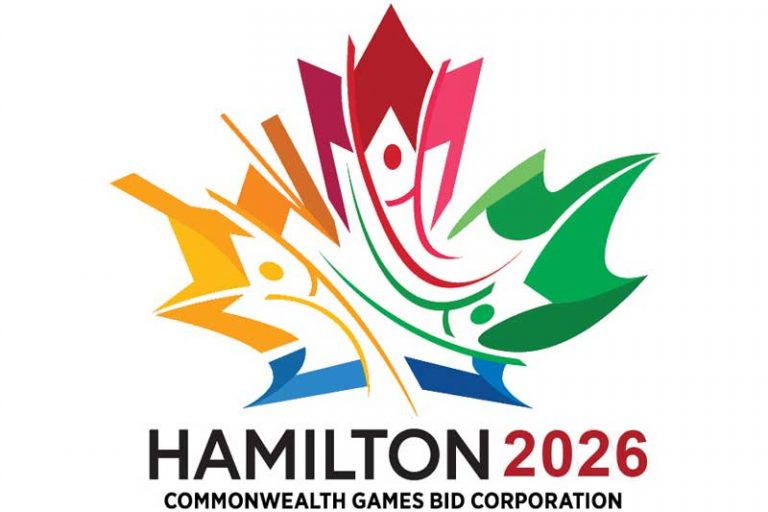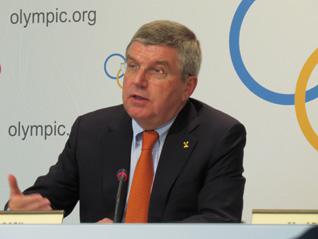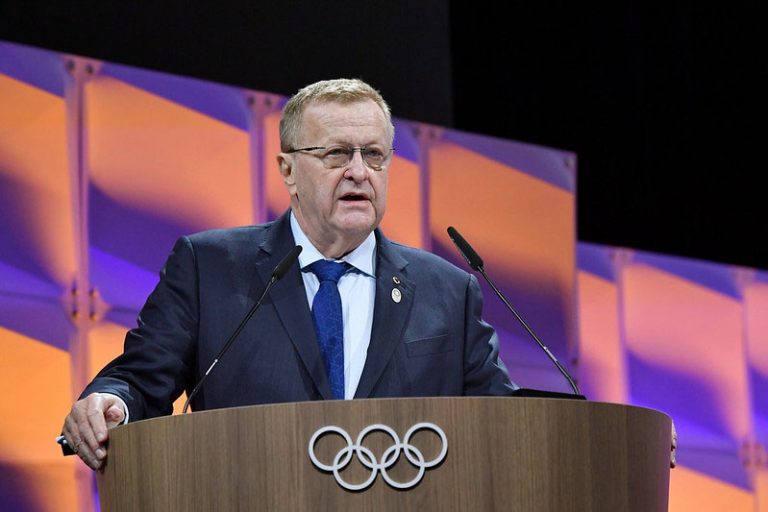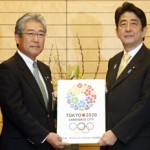
BidWeek, Reporting from Toronto, Canada – Somehow the Olympic movement, and sport in general, have survived the week and we’re still trudging toward the Olympic Games in Rio this August. But credibility, and the sense that the Olympics represent fair play, have suffered defeats on multiple levels – and it may take months or years for confidence in the system to return.
Explosive revelations came to light this week including the possibility that several athletes who competed in Beijing 2008 and London 2012 and could otherwise qualify to compete at the Rio Games, have tested positive for banned substances using newly available analytical methods.
These new developments come while sports authorities are still reeling at the news that Russia allegedly ran a clandestine doping cover-up operation to protect its tainted athletes at the Sochi 2014 Olympic Winter Games.
Also developing this past week are accusations that during its 2020 Olympic Games bid, Tokyo made two suspicious payments amounting to over $2 million to an account linked to the son of disgraced ex-world athletics chief Lamine Diack. The payments are being investigated by French prosecutors, and the Japanese Olympic Committee said Wednesday that it has set up a commission to examine the transactions after Prime Minister Shinzo Abe agreed to fully cooperate with officials.
The payments were made to a Singapore-based account in the name of Black Tidings held by consultant Ian Tan Tong Han who is reportedly good friends with Papa Massata Diack – the former Diack’s son who is wanted in France on alleged money laundering, bribery and corruption charges.
Tokyo 2020 vehemently denies any wrongdoing.
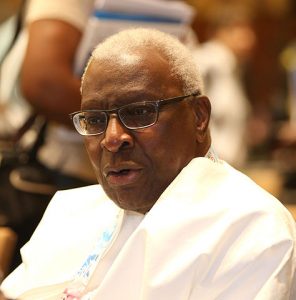
Tsunekazu Takeda, President of the now dissolved bid committee issued a statement earlier in the week claiming the transactions were part of a legitimate bid business.
He said “the Tokyo 2020 Bid Committee can confirm that it paid an amount for the professional services received for the following consultation work including; the planning of the bid; tutoring on presentation practice; advices for international lobbying communications; and service for information and media analysis.”
“All these services were properly contracted using accepted business practices.
“The payments mentioned in the media were a legitimate consultant’s fee paid to the service we received from Mr. Tan’s company. It followed a full and proper contract and the monies were fully audited by Ernst & Young ShinNihon LLC.”
To this, International Olympic Committee (IOC) President Thomas Bach said Wednesday “we took note…” of the Japanese statement.
He added “we are not amused if there are allegations against an Olympic candidature and the Olympic candidature of Tokyo. This is about zero-tolerance; we have in the IOC all the instruments in place to fight against corruption. That does not mean we are immune to corruption but we do everything we can to address and to fight this evil.
“We will actively cooperate with the inquiry.”
But Bach said the IOC will not launch an investigation of its own.
If the French inquiry reveals, as thought by investigators, that the payments were made by the bid committee to receive favorable treatment by IOC voters – comparisons to the Olympic vote buying scandals of the late 1990’s will quickly follow, nullifying years of effort by the IOC to clean up its image on the international stage.
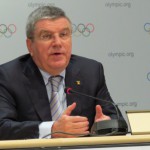
In 1998, the Salt Lake City corruption scandal led to the expulsion of several IOC members when a tradition of bids providing lavish gifts to voters got out-of-hand. Subsequently the IOC passed several reforms to clean up its act.
So what is it that makes athletes and bids alike break the rules and risk severe consequences when the chances they’ll eventually be caught are extremely high?
Let’s take a trip back to 2013 when along with Tokyo, Istanbul and Madrid were also competing to host the 2020 Olympic Games.
On September 7, 2013 at an IOC Session in Buenos Aires, Tokyo dominated on the two ballots set before the voting members. Collecting 42 of a possible 94 votes on the first ballot, the Japanese bidder narrowly missed a quick one-round decision. But decisive results came on the second ballot with Tokyo prevailing 60 votes to 36 over Istanbul.
In retrospect it seems the Tokyo victory had been a foregone conclusion, but in the run-up it was contested as one of the tightest Olympic bid races in history. Experts and analysts were equally split among the three candidates – all three – and the value of any small boost or advantage would have been amplified. It was one of the rare bids where there was no clear front runner and no likely also-ran.
It was Madrid’s third consecutive bid for the Games – the fifth straight for Spain – and the dedicated team that proposed a frugal Olympics saw a slow start. It was a bid before its time, before soon-to-be elected IOC President Bach proposed his Agenda 2020 that marked efficiency, sustainability and cost cutting as its corner stones. Low-budget was still perceived as a liability and a weakness. But over the campaign attitudes were changing, and so too was Madrid 2020.
The bid shifted marketing and lobbying efforts into high gear on the final lap and long-term diligence seemed to be paying off. It had Tokyo and Istanbul looking over their shoulders.
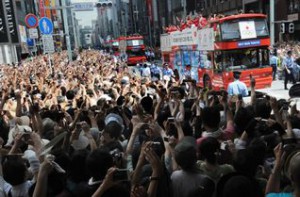
Istanbul, bidding for the fifth time in six quadrennials, rocketed to a strong early start in the race, proposing a unique Games – the first in a predominately Muslim nation. Touting youth, diversity, and a Games bridging two continents the bid had wide appeal. To most observers, Istanbul was the bid to beat.
But in May 2013, just as Turkish delegates were wrapping up a critical presentation to SportAccord members in St. Petersburg – and even as Rihanna’s “Diamonds” soundtrack was still blaring from the auditorium loudspeakers, encapsulating the youthful spirit of the bid – Protesters in Istanbul’s Taksim Square clashed with police resulting in death and injuries. The event triggered mass protests across the nation by those opposing the government and seeking better human rights.
This, a clear turning point in the bid, lit a fire under the two rivals.
Tokyo’s win was well-earned on its own merits. A solid venue plan, stable economy and government, and public support numbers that were on the rise throughout the campaign were key factors for the winning bid. But Tokyo failed to win its previous bid for the 2016 Games, falling second to Rio – and expectations were high from the top levels of the nation for a successful end this time around.
When Istanbul was being overrun by protesters in June, Tokyo’s public support had hit record levels.
Then Tokyo 2020 entered into a contract with Black Tidings set to run from July 1 to September 30, essentially for the reminder of the campaign, JOC President Tsunekazu Takeda told Kyodo News. For the contracted bid consulting services a fee of $950,000 was paid on July 29. This was just the first of two contracts – more on the second contract later.
Toward the end of the campaign Japan’s Fukushima nuclear disaster grabbed headlines and risks to a potential Tokyo Olympics seven years away were being discussed, damaging the goodwill earned by the bid in the early stages of the race. This factor was weighing heavily on bid organizers who were desperate to downplay the impacts of a reported radiation leak just weeks earlier.
At Tokyo’s final presentation Prime Minister Shinzo Abe blasted the media for sensationalizing the incident, and he promised that there would be no threat to the Games.
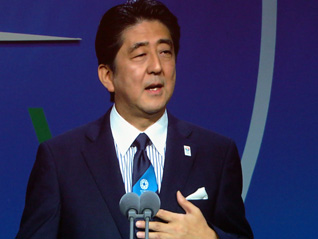
After the awarding of the 2020 Games in Buenos Aires, the IOC voted to elect Thomas Bach as the organization’s new President. With that high profile election taking place in the same Session, the politics of the vote got more complex making the outcome less predictable. Members have a habit of exchanging favors and making unwritten side deals, and it’s likely that votes in one election were exchanged for support in the other.
While it’s legitimate politicking to make such deals, it created less certainty for the Olympic bid candidates, and perhaps in some cases a sense of helplessness.
A second payment of $1,375,000 was made to Black Tidings October 24 to cover a contract period of October 5 to November 30 – a full month after Tokyo won the bid. Consultants were said to have provided analysis on bid winning factors.
Let’s take a closer look at the payments.
A fee of almost $1 million for bid preparation services including tutoring, lobbying and communication over three months is high – but on the surface it is not unfathomable – especially if expenses are taken into account. The costs of these kinds of highly specialized services are not usually part of the public record so it is difficult to establish a baseline.
However, Boston’s failed 2024 Olympic bid provided some data as part of its quarterly report published after the bid was abandoned.
It said “the Boston 2024 Partnership engaged with Interpublic Group for marketing and communications services at an annualized projected spend of $1.3 million, which includes services from Weber Shandwick and Octagon.”
“In addition, consulting contracts were signed in April 2015 with Teneo Sports, which specializes in bid presentation services, and JTA, a global sports communications agency.
“The annualized projected spend with Teneo is expected to be in the range of $1,000,000 – $1,250,000. For JTA, annualized projected spend is expected to be in the range of $250,000 – $500,000.”
What’s important to note is that the Boston figures are for annualized spends where the Black Tidings contract was for only three months. Also worth close consideration is that the firms Boston hired are well-known leaders in their fields and are staffed by specialized teams. Black Tidings, with what is known so far, seems to be represented by only one person.
Bach’s Agenda 2020 introduced a bid consultants registry whereby third parties hired by a bid are to be documented and listed on the IOC Website in public view. To be registered, the firms must agree to uphold the ethical standards required by the IOC. There was no such registry during the 2020 bid.
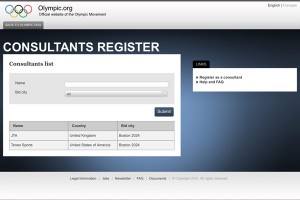
But that didn’t stop Tokyo 2020 from trumpeting, through a press release, partnerships with leading public relations and communications firms Weber Shandwick and bid specialists Seven46 who were both active and visible throughout the campaign. There was never an announcement about Black Tidings, in fact Masato Mizuno, the CEO of Tokyo’s bid said he didn’t even know the firm existed.
That casts significant doubt on the legitimacy of the relationship.
With a high price, low profile, and for services that are already being well-provided by other firms – the contract has caught the attention of investigators. The questionable background of the Black Tidings firm that reportedly shut down later in 2014 only adds to the doubt.
Then there is that second payment, allegedly to provide “analysis on bid-winning factors” Takeda told Kyodo News.
The price this time was well over $1 million to provide less than two months service – starting weeks after the election was already won, mind you. This kind of service is not unusual as it provides accountability for stakeholders and leverages the investment already made over the two-year campaign to capture valuable lessons-learned.
A former Tokyo 2020 official said that a 30 to 40 page analysis was provided by Black Tidings to the bid in November. Again, the price, the value of the work and its source make this a transaction that’s difficult to swallow.
Application documents submitted by Tokyo 2020 to the IOC in 2012 suggested that the bid had budgeted a total spend of $83.3 million throughout the campaign and it’s very likely, as typically bids dig a little deeper as time goes by and the stakes increase, that the final spend went well beyond the $100 million mark.
An additional and relatively small payment of $2 million for “services” that could give you a bit of an edge might be very tempting in that stressful, competitive, high-stakes situation – especially if some of those funds were contingent on a victory (the trailing contract creates that allusion in this case.)
Interestingly, a parallel analysis can be made for athletes who risk everything to dope – cheating to reach their ultimate goal even when they know that the risk is high and consequences severe.
To be clear, none of these charges are proven, and Tokyo 2020 officials are backing up the legitimacy of the contracts under scrutiny. Tokyo’s bid was solid, and worthy of being elected by the IOC in 2013.
The IOC has already since built transparency into the bid-consultant relationship by implementing the consultants registry – adding a layer of vetting in real time.
It’s in hands of French prosecutors to determine the legality of the transactions – and who knew what, when. But at the very least, and assuming the intentions of Tokyo 2020 had legal purpose, the bid made a poor ethical choice by transacting business with a close connection to an IOC member.
They’ll have some explaining to do.
[posts_carousel query_type=”tags” tags=”BidWeek” animationloop=”true” hide_excerpt=”true” hide_meta=”true”]
